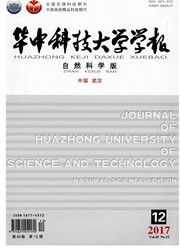

 中文摘要:
中文摘要:
对润滑油在空调系统中的滞留情况进行了分析,建立了制冷剂在空调系统垂直管路内携带润滑油临界流速的数学模型.讨论了一些参数对润滑油在吸气管路中油滞留特性的影响.结果发现:影响空调系统中油滞留的因素主要包括油质量分数,制冷剂的质量流量、制冷剂与润滑油的粘度比、管路内径、重力加速度,当制冷剂中油质量分数增加时,吸气管路中油滞留体积也会增大.同时,当制冷剂的质量流量从181kg/(m^2·s)增加到409kg/(m^2·s)时,单位管长中的油滞留体积减少58%.在质量流量、温度、压力和油质量分数相同的情况下,垂直吸气管路中油滞留体积比水平吸气管路中的油滞留体积要高出47%.当油膜与制冷剂蒸气粘度比因子从1.00减少到0.79,油质量分数为4%时,吸气管路中油滞留体积减少23%.
 英文摘要:
英文摘要:
Lubriant oil retention characteristics of the refrigeration systems in an air conditioner were analyzed. Mathematic model for the critical refrigerant velocity for oil entrainment on the inner wall of a vertical pipe in the air conditioning system is developed. A parametric analysis in the suction line shows that. the oil retention depends on the oil mass fraction, vapor refrigerant mass flux, mixture viscosity ratio, inner diameter of pipe and gravity force; the oil retention in the suction line increases with the increment of oil mass factor; an increase of refrigerant mass flux from 181 kg/(m^2·s) to 409 kg/(m^2·s) led to a decrease of oil retention by about 58 % at the same refrigerant mass flux, temperature, the pressure and oil mass factor, the oil retention in the vertical suction line increased about 47% with respect to the horizontal suction line due to the gravity force; at constant OMF(oil mass factor)=4%, if the viscosity ratio factor was reduced from 1.00 to 0.79, the oil retention volume can be reduced by about 23 %.
 同期刊论文项目
同期刊论文项目
 同项目期刊论文
同项目期刊论文
 期刊信息
期刊信息
